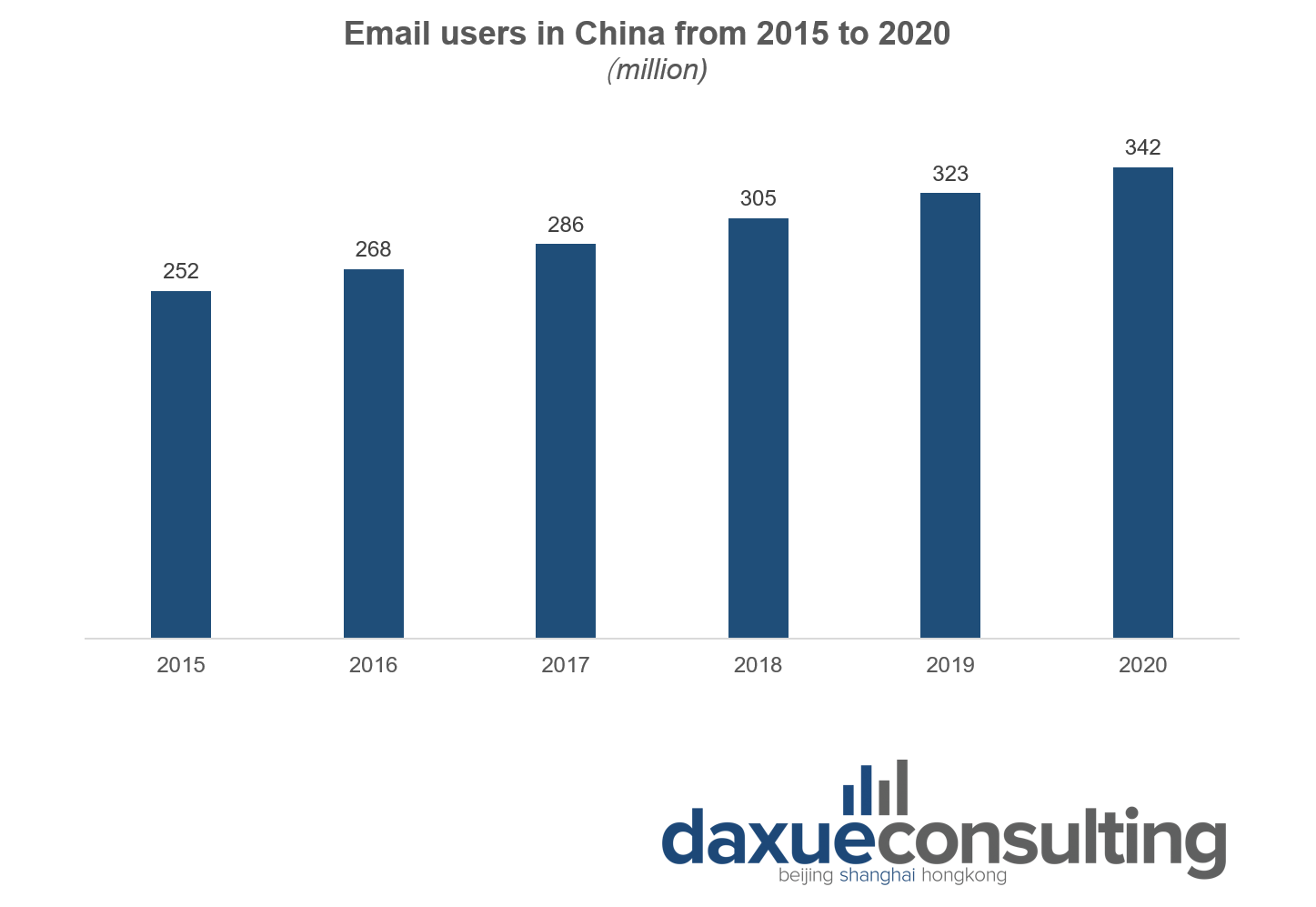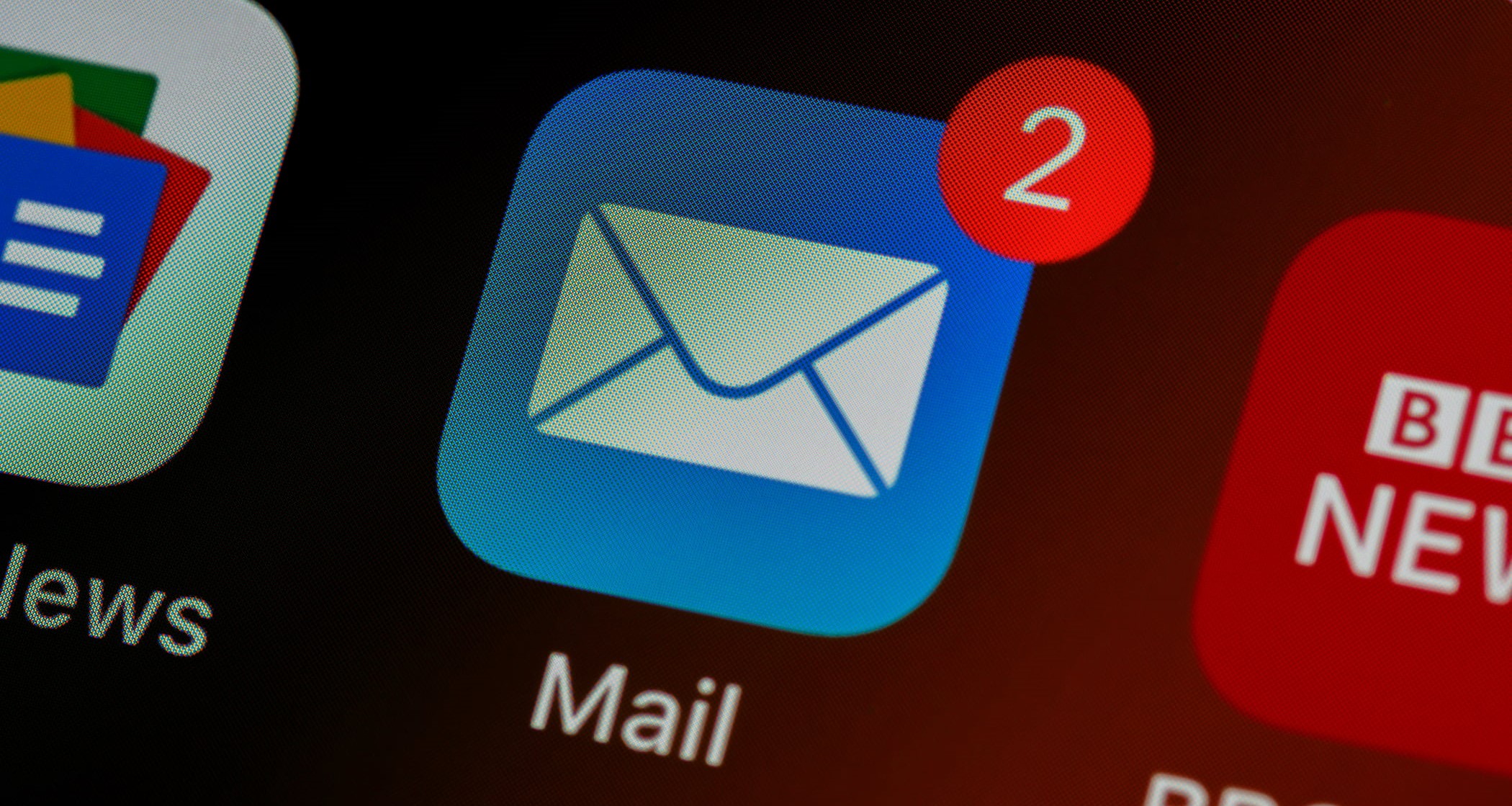Email marketing consists in delivering commercial information to target consumers through email after obtaining users’ prior permission. With the advent of the mobile Internet era, many enterprises have begun to move from offline to online to increase sales and achieve brand promotion. Email marketing is more mature than any other internet marketing channel. It boasts about six advantages: low cost, informative message, a wide range of applications, high accuracy, personalized and high information dissemination, which also makes it difficult to completely replace with other marketing methods.
The email marketing in China is completely different from that in the West
The Chinese digital ecosystem is completely different from what we know in the West. In the Western world, almost everyone uses email every day, but this is not the case for Chinese netizens. The Internet in China was far behind the developed countries in the world in the early 2000s, when emails were the main tools for business communication. By the time the Internet developed in China, instant messaging software had already appeared, so China directly skipped the stage of email as a chat tool, and that is why Chinese people seldom use email.
The development of corporate email in China lags behind Western countries. In 2019, Chinese corporate email users sent and received about 1.77 billion emails per day on average, compared with 246.5 billion emails sent and received globally, accounting for less than 0.01 percent.
Despite not often used, email marketing in China is growing steadily
In China, email may not be growing as fast as social media or instant messaging apps, but its users are still growing steadily. According to iiMedia, China’s personal email users kept between 2015 and 2020, passing from 252 million people in 2015 to 342 million people in 2020.

Furthermore, corporate email is also growing rapidly in China. By the end of 2021, over 1 million companies utilized NetEase business email accounts. According to the joint report by ZH Huixin Post and 360 Industry Security Research Center, by the end of 2019, there were about 5.2 million independent domain names for business email registered in China, an increase of 1.96% compared to 2018. The total number of active corporate email users in China is about 140 million, an increase of 7.7% compared to 2018.
Nowadays, there are various means of communication between enterprises, but enterprises still prefer to use email. Sending emails makes the communication between companies more formal and professional, and receiving emails can also give the other enterprise time to think about the reply.
What are the alternatives to email marketing in China?
As we know, Email Newsletters are not that effective in China now compared to the West. Which channel can replace newsletters? WeChat and QQ may be two good options.
WeChat marketing
WeChat is a multi-purpose app released by Tencent in 2011. As a messaging app, social media platform, and mobile payment solution, WeChat quickly became a must-have application in mainland China. Boasting more than 1.3 billion monthly active users (MAUs), it is used for a wide range of applications from paying bills to ordering food, shopping or just checking friends’ social media posts. According to Hootsuite, Chinese people spend on average one third of their online time on WeChat. In China, WeChat is a powerful tool to engage with consumers, has already been integrated into the daily life of the Chinese people.
Channels
WeChat Channels is a short video feature launched in 2020 similar to China’s TikTok –Douyin. It features four feeds based respectively on user’s followed accounts, content loved by contacts, trending content and geo-localized content based on user’s location. Official accounts have unrestricted access to the Channels feature, which makes it a great advertising tool for engaging with new customers.

Live streaming
Since March 2019, WeChat also allows official accounts to open live streaming channels. There are two main types of live streaming marketing content on WeChat: regular content and event-based content. Regular content is streamed on a regular basis and is used to create user engagement. Event-based content is centered on specific marketing campaigns. This kind of campaign focuses more on sales and advertising, offering coupons and sneak peeks at new products. Both types make WeChat live streaming a great way to market to Chinese customers.
Private traffic pools
Private traffic is another way to engage with customers on WeChat. Private traffic is a marketing method where communication with customers is funneled into private pools on platforms that allow brands to have full control without costs of third-party platforms. Private traffic pools offer a human-like and personalized service, thereby reducing the churn rate. For enterprises, it has the advantages of saving advertising costs, diversified sales methods, and long-term lasting effectiveness.
QQ marketing
QQ is a mobile Internet leading mobile application created by Tencent. According to Tencent’s financial results for the second quarter of 2022, there were 569 million monthly active QQ accounts as of June 30, 2022. QQ, as one of the most extensive communication tools in China, has been deeply integrated into Chinese people’s lives and linked them together to a great extent.
On QQ, brands can advertise their products and promotional campaigns through QQ marketing communication tools. They can also release branded emojis and stickers that users can use and spread.
QQ group marketing is another powerful tool for connecting with customers. Most people who have used QQ have joined some groups they are interested in, such as work groups, life groups or friend groups, thus community marketing through QQ is a good way to attract the attention of Chinese consumers

Weibo marketing
Founded in 2009, Weibo has become an important part of many Chinese people’s lives over the past 12 years. According to the 2020 Weibo User Development Report, monthly active users of Weibo reached 511 million. The rapid development of Weibo also makes its marketing effect particularly significant.
Brands tend to update their micro-blog to introduce their products and promotional events, so as to establish a good corporate image and product image. Weibo marketing has many advantages: fast transmission speed, wide reach, and a large user base. Moreover, Weibo can help brands improve their reputation and awareness among Chinese consumers.

The future of email marketing in China
- Email marketing in China is different from that in the West. Chinese people seldom use emails and the development of corporate emails in China lags behind Western countries.
- Despite not often used, email marketing in China is growing steadily.
- In China, there are some alternatives to email marketing, among which WeChat marketing, QQ marketing and Weibo marketing are the most prominent.





